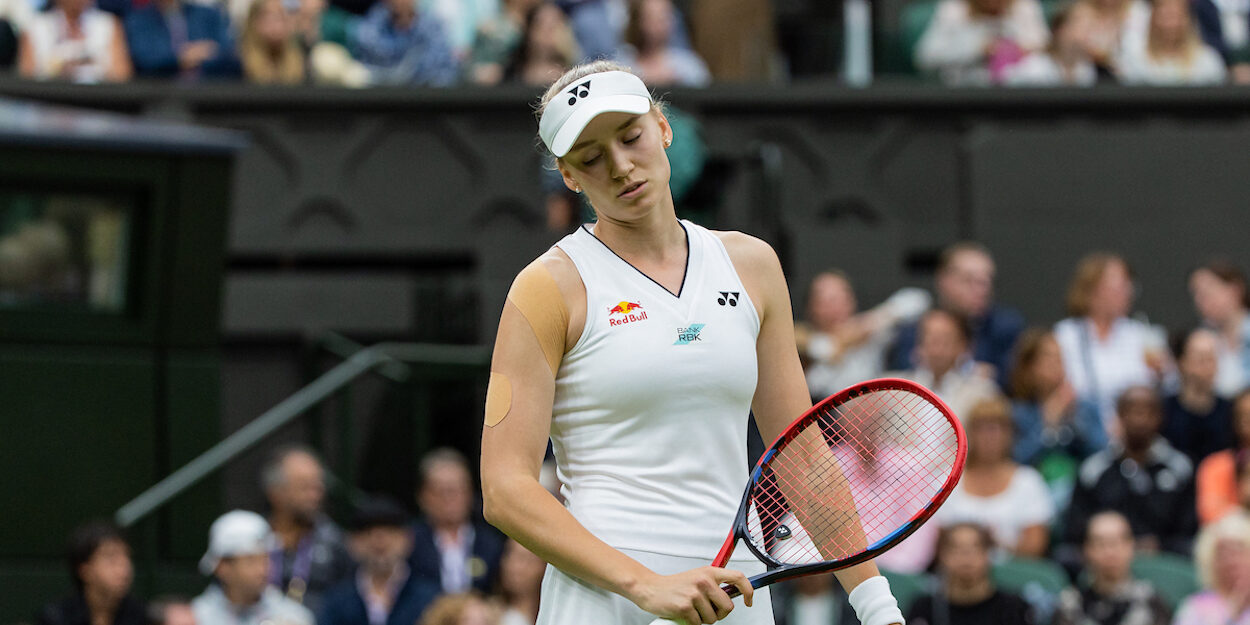
“Picking potatoes” – Elena Rybakina Ex-Coach suspended by WTA
Stefano Vukov under fire after allegations of mistreatment toward Elena Rybakina, calling her “stupid.”
Elena Rybakina’s split from longtime coach Stefano Vukov has taken a dramatic turn, as allegations of mistreatment continue to surface. The Kazakhstani star, who won Wimbledon in 2022, has reportedly endured years of verbal and psychological pressure from Vukov, with claims emerging that he belittled her, controlled her training environment, and even dismissed her illness as an excuse. Among the more jarring accusations, Rybakina revealed that Vukov said, without him, she would “still be in Russia picking potatoes,” a comment that has fueled backlash within the tennis community.
Vukov’s coaching style had drawn scrutiny before, particularly for his intense on-court demeanor. However, Rybakina’s latest revelations paint a picture of a toxic dynamic behind the scenes. Reports suggest that he exerted extreme control over her schedule, restricted her interactions, and pushed her to train despite being sick—allegations that have now prompted calls for greater oversight of coaching relationships on the WTA Tour.
The fallout has put a spotlight on the broader issue of player-coach dynamics in professional tennis, particularly the power imbalance that can exist in long-term partnerships. Her decision to publicly address these concerns marks a significant moment in an era where players are increasingly vocal about mental health and working conditions. As the WTA considers potential disciplinary action against Vukov, the situation raises critical questions about accountability in coaching and the support systems available to players dealing with these challenges.
Inside the Baseline…
The latest controversy surrounding Elena Rybakina and her former coach shines a harsh light on the often murky dynamics between athletes and those guiding their careers. While Rybakina’s rise to the top of the sport has been marked by impressive talent and determination, the public fallout with her coach, especially the bizarre “picking potatoes” comment, only serves to emphasize the high pressure, intense scrutiny, and personal boundaries that come with the spotlight. It’s a reminder that even in tennis, where performance is everything, the personal lives and mental well-being of players are often overlooked. The situation also raises questions about accountability and professionalism in the coaching world, and how much influence a coach should really have over an athlete’s life off the court.
READ NEXT: Wimbledon serves upcycled tennis balls as homes for harvest mice
![]() Join >> Receive $700/£600 of tennis gear from the Tennishead CLUB
Join >> Receive $700/£600 of tennis gear from the Tennishead CLUB
![]() Social >> Facebook, Twitter & YouTube
Social >> Facebook, Twitter & YouTube
![]() Read >> World’s best tennis magazine
Read >> World’s best tennis magazine
![]() Shop >> Lowest price tennis gear from our trusted partner
Shop >> Lowest price tennis gear from our trusted partner


